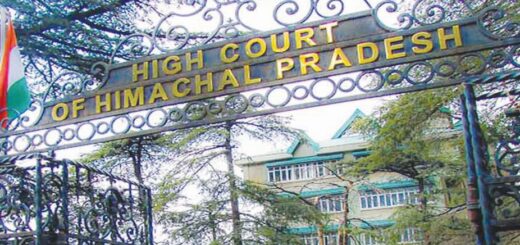SC Blocks Madras HC Decision to Reinstate DA Case Against Former TN CM Panneerselvam and His Family.

The Supreme Court has provided relief to former Tamil Nadu chief minister O Panneerselvam by staying a Madras High Court order that reinstated a disproportionate assets (DA) case against him and his family. A bench consisting of Justice Hrishikesh Roy and Justice S V N Bhatti issued a notice to the Tamil Nadu police and others in response to a plea from Panneerselvam. The bench stated, “In this case, we are challenging the order from a single judge of the High Court that used suo motu criminal revision powers under Section 397 of the Code of Criminal Procedure, 1973. Notice has been issued.” Meanwhile, the Supreme Court has paused the enforcement of the High Court’s judgment.
On October 29, the High Court overturned a trial court decision that allowed the prosecution to withdraw the DA case against Panneerselvam and others, while also discharging the accused. The High Court nullified the chief judicial magistrate/special judge’s order from December 3, 2012. Justice N Anand Venkatesh noted that since two accused had passed away, the proceedings against them were terminated. The trial court had previously discharged them in the DA case in 2012. The directorate of vigilance and anti-corruption (DVAC) claimed that Panneerselvam accumulated assets in his name and that of his relatives that were 374 times greater than his known income sources during his four-month term as chief minister and later as revenue minister from 2001 to 2006.
The High Court judge stated that according to the constitution of the Special Court for MP/MLA cases, the appropriate court is now the Principal District and Sessions Judge (Special Court for Trial of MP/MLA Cases) in Madurai. The Chief Judicial Magistrate of Sivaganga was instructed to send all records to the Madurai court by November 27, 2024. Once the records are received, the High Court indicated that the Madurai court would issue summons to the six remaining accused, including Paneerselvam, and proceed according to the law. When the accused appear, the special court in Madurai will require a bond under Section 88 of the CrPC, with or without sureties as deemed necessary.
If any accused attempt to delay the process, the special court has the option to revoke their bail and remand them to custody, following the principles set by the Supreme Court, the High Court noted. The judge mentioned that the “final report on further investigation” dated November 2, 2012, submitted by the DVAC will now be considered a supplementary report under Section 173 (8) of the CrPC. Since the case dates back to 2006, the Madurai special court was ordered to prioritize the matter and conduct daily proceedings, adhering to the Supreme Court’s directives, and to resolve the case by June 31, 2025. Additionally, the special court in Madurai was instructed to file a compliance report with the registrar general of the High Court.









